Veni, Vidi and Vici grants awarded to the University of Groningen in 2020
Grants awarded by the Netherlands Organisation for Scientific Research (NWO, Innovational Research Incentives Scheme).
Vici Awards
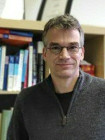
Unvraveling the metabolic clock of the cell
Prof. M. (Matthias) Heinemann (FSE)
Metabolism and cell division are essential for continuing life, but we still do not understand the interaction between these processes. Matthias Heinemann intends to unravel the mechanism that is responsible for the clock-like dynamic behaviour of metabolism during eukaryotic cell division. This will generate important information for the fields of biomedical science and biotechnology.

Future socioeconomic inequality in mortality
Prof. F. (Fanny) Janssen (FRW)
Socioeconomic differences in mortality constitute an important social issue, but we do not know how these differences are realistically likely to develop. In her research, Fanny Janssen intends to devise an advanced prediction model for mortality inequality using new information about the effects of smoking, obesity and alcohol. She also aims to ascertain the possible effects of preventive health policy.
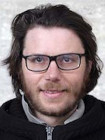
Next-generation nanosensor for home diagnostics
Prof. G. (Giovanni) Maglia (FSE)
Cells cannot function without proteins. The concentration, expression and chemical modifications of proteins are accurate indicators of many diseases. In this project, Giovanni Maglia will develop cheap, fast technology for detecting and analysing proteins, to be used to improve home diagnostics.
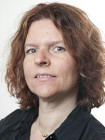
Symptom sensitivity
Prof. J.G.M. (Judith) Rosmalen (FMW/UMCG)
Judith Rosmalen has been researching psychosomatic illness for many years. She will use the Vici grant to study how experiences from a person’s youth can affect the degree to which they suffer from physical symptoms. Previous research has revealed vast differences in people’s reactions to physical symptoms. This is related to hereditary differences as well as to previous experiences with physical symptoms. Rosmalen will use people’s childhood experiences to explore how these differences develop.
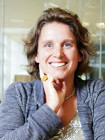
Poor old pores
Prof. L.M. (Liesbeth) Veenhoff (FMW/UMCG)
Liesbeth Veenhoff wants to know how and why cells change as they age. Her research focuses on changes in the nuclear pore complexes; the ‘gatekeepers’ to the nucleus. Nuclear core complexes play a key role in biology. After all, information in the DNA must leave the nucleus in order to make new molecules. The researcher wants to know which quality control mechanisms are in place to ensure that nuclear core complexes can do their job effectively. This isn’t as easy as it may sound, and tends to go wrong during the ageing process and if the body is confronted with certain neurodegenerative diseases. It is hoped that activating these control mechanisms may provide a new way of repairing old or diseased cells.
Vidi Awards

Transparent Artificial Intelligence
Dr Kerstin Bunte, Faculty of Science and Engineering
Experts want to know how measurement data could provide information on natural processes that they are researching. Computer scientists can link the predictive power of artificial intelligence to the assertive power of models to create more transparency and insight. The new methods could lead to personally tailored medication and innovations in the smart industry.
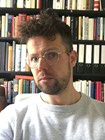
Peacebuilding in Early Modern France
Dr David van der Linden, Faculty of Arts
How can former enemies reach a sustainable peace after a civil war? This project researches the peace instruments that were developed subsequent to the French Wars of Religion (1562–1598) and analyses how effective these solutions were. Historical research can thus shed new light on the long-term effects of peace strategies.
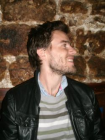
Tuning the senses – how cognition shapes sensation from the start
Dr Sebastiaan Mathôt, Faculty of Behavioural and Social Sciences
The size of the pupil determines how light reaches the retina. And the tension of the eardrum determines how sound enters the ears. This influences our perceptions. But how much influence do we have over our senses? This researcher is investigating the extent to which our brains actively steer these sensory processes.
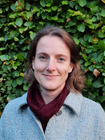
Stories from the infant years of our Milky Way
Dr Else Starkenburg, Faculty of Science and Engineering
What is now an imposing galaxy was once very small. The oldest stars are our witnesses of the galaxy’s early youth. This research traces these stars efficiently and combines all the information that they provide us into a unique story.

Clashes between cosmic titans
Dr Lingyu Wang, SRON/Faculty of Science and Engineering
The evolution of galaxies is an unsolved puzzle. Spectacular clashes between galaxies can fundamentally change the colliding galaxies. By applying artificial intelligence to powerful new surveys of the universe, researchers will be able to closely measure the impact of collisions on the growth of galaxies and black holes for the first time.
Veni Awards
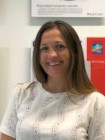
Expanding the enzyme universe: a closer look at unnatural amino acids
Dr I. (Ivana) Drienovská (FMW/UMCG)
Genetically encoded unnatural amino acids represent a promising strategy toward designer catalysts, however still very few examples exist. This proposal aims to investigate a set of unnatural amino acids with high catalytic potential. If successful, it would allow a generation of enzymes for new-to-nature catalysis in a sustainable fashion.

Examining how solar-powered slugs steal chloroplasts and survive starvation
Dr E.M. (Elise) Jerschabek Laetz (FSE)
Solar-powered sea slugs are an evolutionary enigma. They acquire the ability to photosynthesize by stealing functional chloroplasts from algae. The energy produced allows them to withstand extended starvation. This research unravels the mechanisms behind this ability by examining chloroplast sequestration, retention and the energetic tradeoffs associated with hosting foreign organelles.
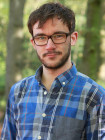
Defying nuclear conventions: how parasites segregate chromosomes
An equal distribution of chromosomes during cell division is essential for the propagation of life. In unicellular parasites, this process evolved remarkably rapidly, resulting in unconventional mechanisms of chromosome segregation. This research aims to pinpoint molecular innovations within these systems in relatives of malaria parasites, hoping to uncover opportunities for new therapies.

Social networks and democracy
How do social networks impact democracy? In the age of ‘fake news’, this question is societally more relevant than ever. This project develops a general theory of the interaction between networks and democracy, tests its results on the ‘liquid democracy’ voting system, and provides concrete recommendations that provably safeguard democracy.
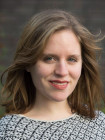
Talking about chronic pain — the discursive construction of the body in pain clinic consultations
Dr J.H.M. (Jana) Declerq (Arts)
Our society conventionally views mind and body as separate entities. However, research shows that diseases – chronic ones in particular – consist of an interplay between body, mind and sociocultural aspects. This project researches the tension between these two perspectives that arises in communication between healthcare professionals and chronic pain patients in pain clinics.
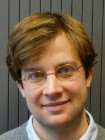
Unconventional monetary policy and financial crises
Dr C.G.F. (Christiaan) van der Kwaak (FEB)
Ever since the financial crisis, central banks have purchased government debt in previously unheard-of quantities. The literature has only studied the effects of such policies in mitigating financial crises. This research goes beyond this and examines whether such policies can generate new crises and, if so, how to prevent this.

Forecasting when it matters
Forecast accuracy is routinely measured on average over long time periods. In times of crises, major political shifts and unconventional policies – times when accurate forecasts matter most – these measures are uninformative. This project develops adaptive accuracy measures that lead to accurate forecasts in such extraordinary circumstances.

Sustainable funeral practices in a multicultural context
Dr B.M.H.P. (Brenda) Mathijssen (GGW)
In many Western societies, ‘green’ funeral practices are emerging. Little is known about the cultural construction, meaning and diversity of these practices. This qualitative study examines how people of various ethnic and religious backgrounds understand natural burials, and offers critical insight into the role of nature in the formation of worldviews and meaning.
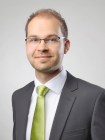
Collaboration models for the future: jointly getting the energy transition done
Dr B.C. (Björn) Mitzinneck (FEB)
For the energy transition to succeed, quick implementation of sustainable technologies is essential. Organizing effective collaborations between municipalities, businesses and citizens can help. However, we lack knowledge on how such different partners can best work together for mutual benefit. This research investigates organizational structures and practices to balance everyone’s interests.
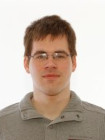
The shared focal point of common diseases and rare diseases
P. (Patrick) Deelen (FMW/UMCG)
One million people in the Netherlands have a rare disease, but the genetic cause is known for only 30% of them. By integrating knowledge of the genetics of common diseases with gene networks, this research helps to predict which genes cause a rare disease and therefore enable diagnosis for more patients.
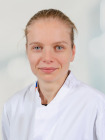
Saving the brain: improving proton therapy outcomes through innovating imaging
Dr A. (Anouk) van den Hoorn-Klingenberg (FMW/UMCG)
Radiotherapy that is used to to kill a brain tumour also damages the healthy brain tissue surrounding it. Patients suffer from cognitive problems as a result. Protons are expected to reduce the damage compared to photons, but some damage is unavoidable. Using novel MRI and PET scans, researchers will get an image of the damage for future proton therapy improvements.
A multi-timescale network modelling framework: Integrating fast-changing mood states and slow-changing symptoms in mental disorders
Dr C.D. (Claudia) van Borkulo (FMW/UMCG)
To reduce the burden of depression, symptoms should be studied at the appropriate timescales. Current methods cannot handle variables with different measurement frequencies. This project aspires to develop a multi-timescale network modeling framework to cross current methodological borders, allowing healthcare professionals to simultaneously investigate symptoms at the time scales at which they evolve.
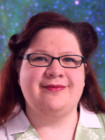
Following the molecules of life around young stars
Dr V. (Veronica) Allen (FSE)
Scientists are unsure as to how life began on Earth, but molecules from space may have helped. In this project, astronomers will use radio telescopes to find molecules of life around young stars and understand how they could have ended up in comets that may have brought them to early Earth.
Measuring the glow from our Cosmic Dawn
Dr N. (Nichole) Barry (FSE)
The birth of the first galaxies during the Cosmic Dawn is a mystery. Astronomers could theoretically observe the faint glow of interstellar hydrogen, but small precision errors in analysis prevent detection. By incorporating information from American, Australian and Dutch software, astronomers may be able to glimpse the Epoch of Reionization.
| Last modified: | 08 February 2024 10.10 a.m. |
